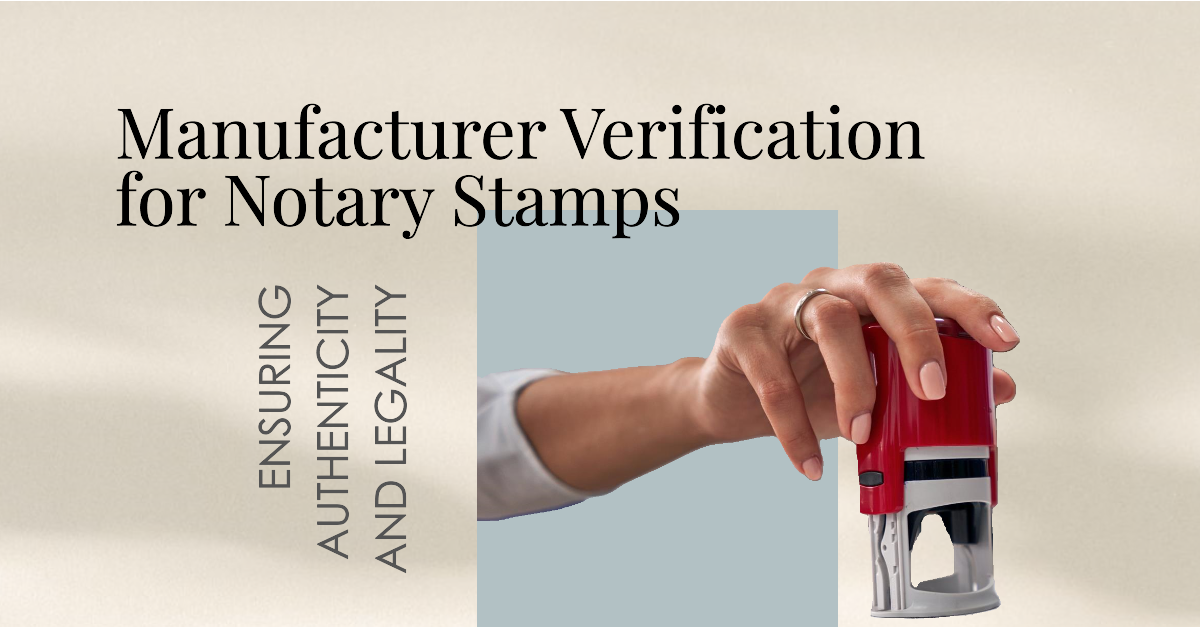
Manufacturer verification is key to notary stamp integrity
By Wayne Lewis
In my role at Stampit.ink, I deal with the critical importance of trust and verification every single day. While the industry grapples with the escalating threat of fraudulent notary stamps, the solution hinges on one essential practice: rigorous manufacturer verification.
Let’s be clear about the vulnerability. The current system is alarmingly porous. A fraudster can easily lift a notary’s information from any publicly recorded document, go online—even to a central platform like Amazon—and order a stamp with zero verification. This isn’t a theoretical risk; it’s a direct gateway to document fraud that undermines the very foundation of the notarial system.
Where We Stand: The Necessity of Verification
At Stampit.ink, we firmly believe that manufacturers have an undeniable responsibility to verify the identity and authorization of every individual requesting a notary stamp. This isn’t just an added service; it’s a fundamental duty.
While most notary stamp manufacturers will request a copy of your notary certificate, we go a step further. Our standard practice is to go straight to the source: we directly verify the notary’s commission and standing with the Secretary of State in their home state before a stamp is ever manufactured. This means we first check the state’s official online database. If we cannot verify your information conclusively, we will contact the Secretary of State’s office directly to confirm the details of your commission.
But our verification doesn’t stop at the state level. In our final layer of defense, if we confirm a notary’s commission is active and find a stamp has been requested, our protocol is to directly call the notary public using the phone number on file with the state. We do this to personally verify that they are the ones who actually placed the order for a new stamp. We do this for every order, regardless of the state.
The Gold Standard: Learning from California
For a clear example of why this is so critical, look no further than the State of California. California law mandates that a notary public must mail their original Certificate of Authorization to the manufacturer. Emails or uploaded copies are explicitly prohibited by state law; it has to be the physical, original document.
This is a brilliant safeguard. Yet, if you browse Amazon, you’ll see companies offering California notary stamps. I challenge you to find one that prominently states they require this mailed, original certificate as the law demands. This gap between what the law requires and what some manufacturers actually practice is precisely the vulnerability we must address.
Why This Matters: Beyond Compliance
Verification is our most powerful tool to deter fraud. It places a necessary barrier between criminals and the tools of our trade. From a legal and ethical standpoint, it’s a non-negotiable safeguard. We have a duty to protect the public and the integrity of the notarial profession. The minor inconvenience of a verification process is insignificant compared to the catastrophic legal and financial consequences of a single fraudulent notarization.
Some will argue that the responsibility lies solely with the notary to safeguard their stamp. While that’s true, it’s only one layer of defense. Manufacturers are the gatekeepers of these tools, and we must be the first, most robust line of defense.
A Call to Action
It’s time for the industry to elevate its standards. We urge manufacturers, lawmakers, and regulatory bodies to recognize that verification is not an option—it is a fundamental obligation. By implementing and mandating direct verification processes, we can collectively protect the integrity of every notarized document and uphold the public’s trust.
At Stampit.ink, we are committed to leading this charge, one verified stamp at a time.
